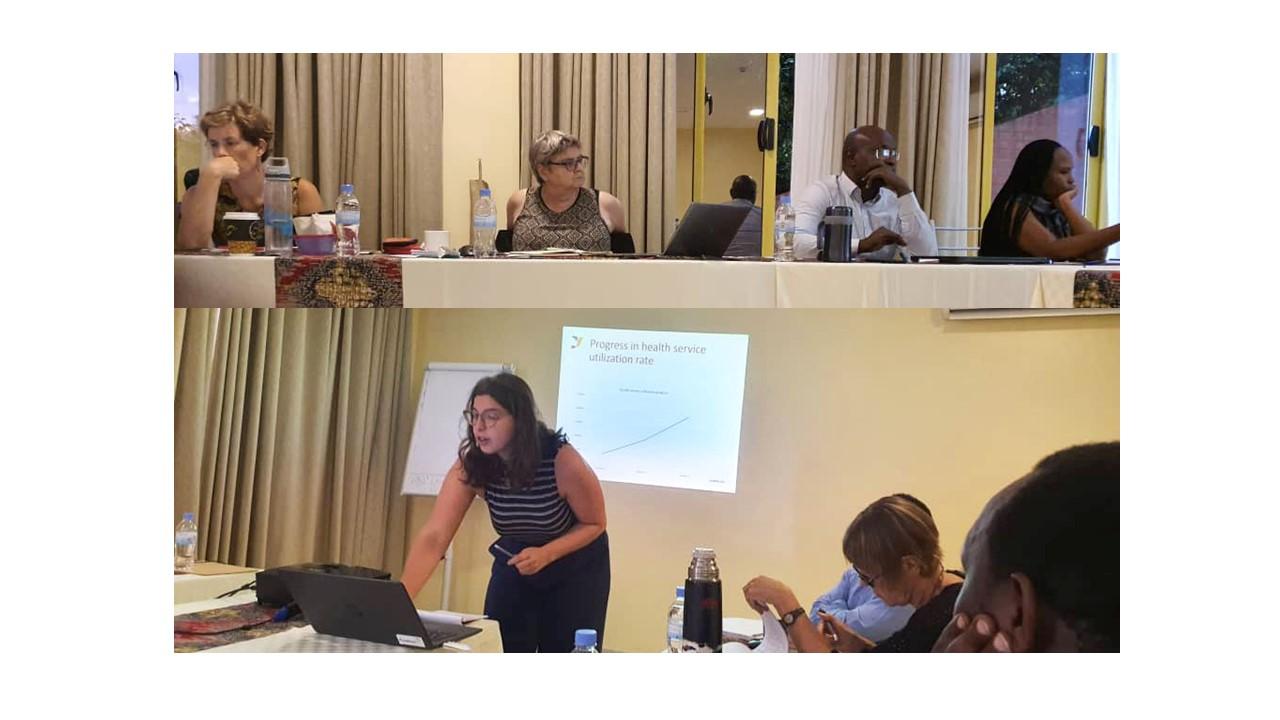Towards increased productivity and efficiency: Access to higher quality information for policy making in Rwanda’s Health sector
On 29 August 2022, Barame
Intervention had a full-day review on Action Researches protocol, their progress implementation and way
forward towards bringing changes to maternal, neonatal, child and adolescent
sexual and reproductive health in the seven supported districts.
Barame intervention focuses
on three main results: (1) Improvement initiatives for integrated quality
MNCH&FP/ASRH services from community up to Hospital level are conducted for
all; (2) A comprehensive life cycle SRH model focusing on sexual and
gender-based violence, teenage pregnancies and drug & substance abuse is
implemented and (3) The self-reliance (knowledge, attitudes, and practices) of
the community with regards to their (sexual and reproductive) health through
social, behavioural and community engagement efforts is enhanced.
Among other action
research projects, the intervention is working on:
1.
Availability of functional medical equipment to
improve quality of services:
This project aims at assessing how vital medical equipment are
contributing to new-born and maternal health lifesaving. The early findings
show that some of non-functioning equipment could be repaired by the hospital
biomedical engineer or simple spare part could be purchased from the hospital budget. Changes in management mindset for the proper
use of the biomedical engineers of the hospital, equipment curative and
preventive maintenance practice, the inclusion of these costs into their own
budget is progressively taken into consideration by different hospital
partners.
2. Improve youth
friendly sexual and reproductive health services:
This action research aims to increase the utilization of
Adolescent Sexual Reproduction Health (ASRH) services by making the services
available to youth, by reducing stigma through offering SRH services at the
youth centers, where many leisure activities for youth take place; combined
with a network of peer educators who live in the same community as the youth.
Also, by making the youth centre functional.
In total, the number of youths who
sought ASRH services at the youth centre was five times as high, compared to the first semester of 2021.
3.
Obstetric Ultrasound services for antenatal care to increase the
coverage of the first antenatal care visit and to detect early pregnancy risk or anomalies. The WHO (2016) recommends one ultrasound scan
before 24 weeks of gestation to amongst others, estimate gestational age (GA)
to reduce, for instance, inappropriate induction of labour, improve detection
of foetal anomalies and multiple pregnancies, and improve a woman’s pregnancy
experience on which the Ministry of Health is aligned, Barame supplied
obstetrical ultrasound machines to Health centres and trained health providers
for piloting that strategy. Being a very expensive equipment going at large
scale need evidence-based data to prove its impact on maternal health.
More
findings on quality of training and mentorship, Health providers on the
interpretation of diagnosis need to be well analysed before the scaling up of
the strategy.
The action researches
are being conducted in partnership with the Rwanda Biomedical Centre.
Latest news from this project
No news

